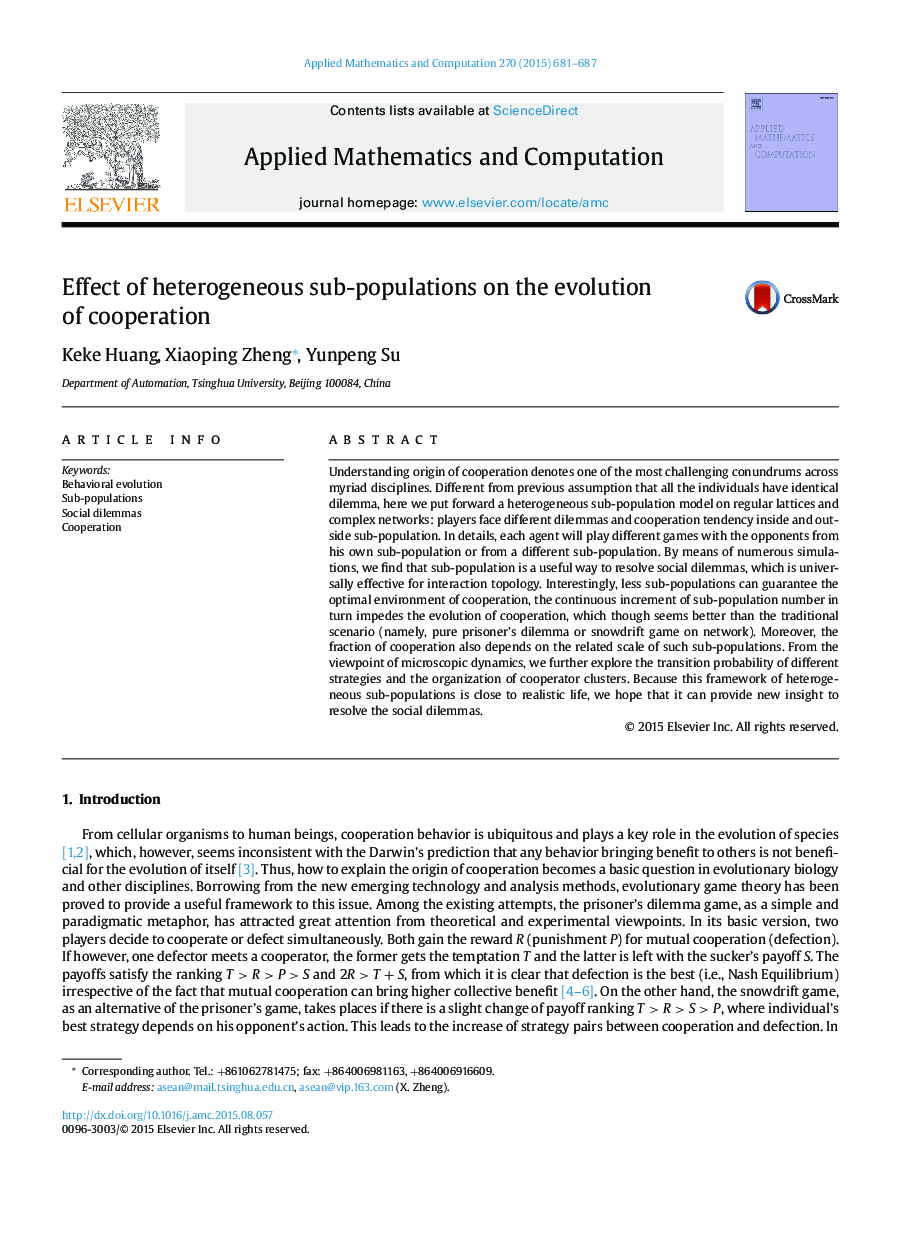| کد مقاله | کد نشریه | سال انتشار | مقاله انگلیسی | نسخه تمام متن |
|---|---|---|---|---|
| 4626277 | 1631784 | 2015 | 7 صفحه PDF | دانلود رایگان |
Understanding origin of cooperation denotes one of the most challenging conundrums across myriad disciplines. Different from previous assumption that all the individuals have identical dilemma, here we put forward a heterogeneous sub-population model on regular lattices and complex networks: players face different dilemmas and cooperation tendency inside and outside sub-population. In details, each agent will play different games with the opponents from his own sub-population or from a different sub-population. By means of numerous simulations, we find that sub-population is a useful way to resolve social dilemmas, which is universally effective for interaction topology. Interestingly, less sub-populations can guarantee the optimal environment of cooperation, the continuous increment of sub-population number in turn impedes the evolution of cooperation, which though seems better than the traditional scenario (namely, pure prisoner's dilemma or snowdrift game on network). Moreover, the fraction of cooperation also depends on the related scale of such sub-populations. From the viewpoint of microscopic dynamics, we further explore the transition probability of different strategies and the organization of cooperator clusters. Because this framework of heterogeneous sub-populations is close to realistic life, we hope that it can provide new insight to resolve the social dilemmas.
Journal: Applied Mathematics and Computation - Volume 270, 1 November 2015, Pages 681–687
